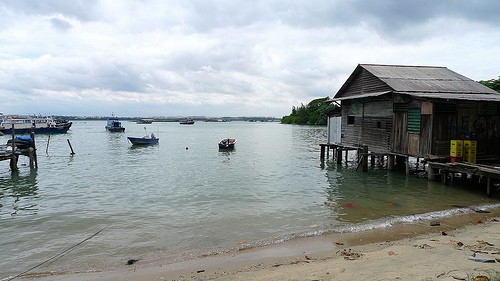The Internet, as a whole, is about allowing people to freely publish on the web. So, when you have state actors like the Communist Party of the People’s Republic of China restricting web access for a sizable chunk of the planet’s web users by creating the Great Firewall of China (GFW), there are some impediments and issues one would have in using WordPress.
Having built a handful of WordPress sites while living behind the GFW for several years, I’ve experienced firsthand what happens when functionality on a website is crippled by connection resets, DNS poisoning and outright blocks from censors.
The Great Firewall of China
As a system of censorship, the GFW is built into multiple layers. From a technical standpoint, one layer is a system of IP blocking, DNS filtering (and poisoning), packet filtering and TCP connection resets of websites not approved by the Chinese government. The other layer of the GFW is a newtork of humans working to undermine the Internet. Hundreds of thousands of “wu-maos” (五毛), also known as Fifty-Centers, or paid censors/trolls, scour the web ensuring content (and discussion) is within the confines of government approval. And most recently, the GFW has been used to to do harm to other sites, such as GitHub.com
In order for Chinese and foreign technology firms to operate under the law of the land, many content providers hire “da-mas” (大妈), also known as Big Mamas, which censors that delete social media posts, news articles and web pages that are marked by propaganda and web security directives.
Because many foreign content and news companies are unwilling to allow unfettered government access to to their servers to censor content the government doesn’t like, sites often end up getting blocked. Many of Alexa’s top 100 sites for the world are blocked by the GFW. For example, Facebook, YouTube, Wikipedia, Flickr, Instagram, Twitter and other social networking sites are blocked. As a result, there has been a veritable tech boom in China to fill these social media voids with government-friendly equivalents, such as Tuduo, RenRen, Baidu, Weibo, and WeChat.
Other web platforms, such as Google Apps (Gmail, Calendar, Google Drive, etc), if not outrightly blocked, are intentionally slowed or have many unusable functionalities as a result.
Because of the GFW a staggering 96 percent of all page views on the Internet in China are served from servers within China. The Internet as we know it is a veritable intranet for China’s 684 million web users. There is much debate among security and web firms about the true intentions of the GFW. Some see it as a form of technological protectionism, to allow Chinese companies to grow in an uncompetitive market. An often repeated example is the case of Sina Weibo. Not six weeks after Twitter was blocked in June 2009, a very similar Chinese microblogging platform, Sina Weibo, was launched and became nationwide phenomenon. Others see it as just another form of idealogical and technological control which prevent flow free expression to foment throughout the country. For example, YouTube, blocked in March 2009, was likely connected to the restive Xinjiang province’s string of terrorist attacks and jihadi videos uploaded to the site. The answer likely lies somewhere between the two, but still yields trouble for those who try to maintain a free and open web.
Is WordPress blocked in China?
No, the WordPress software itself is not blocked in China. There is still a small and vibrant community of WordPress users in mainland China. For example, WordPress.org hosts a localized Simplified Chinese WordPress repository. Additionally, a collection of popular websites in China, such as WP Daxue (WordPress University) and WordPress.com.cn (unaffiliated with WordPress.org or WordPress.com) offer an opportunity for Chinese WordPress users to learn the platform.
WordPress itself can be hosted with most Mainland China-based hosting services, as well as with foreign hosting systems (including services in Hong Kong, Macau and Taiwan), but that does not guarantee that your site will not be blocked or taken down by the government. However, it should be noted that WordPress.com, and some popular sites which use the WordPress platform, are blocked from behind the Great Firewall. Later I’ll talk about plugins, themes and other APIs that are known to have issues in China and what you can do as a web developer.
The Hong Kong and Macau Caveat
Since the British and Portuguese handovers of Hong Kong and Macau, respectively, in 1997, China has maintained a “One Country, Two Systems” approach to its laws and economies. Due to Western fears of the former colonies losing their global economic prowess, the Communist Party agreed to let the two special administrative regions maintain their own passports, laws, currency and economic systems for fifty years. After then, these regions will be put into the fold of the rest of China as province no different than Anhui or Tibet. In the interim, Hong Kongers and Macanese web users are allowed a higher degree of freedom and autonomy that mainland Chinese are not offered. This means that all the blocks and censorship from the Great Firewall of China do not apply.
For more information about this topic, check out my other posts about WordPress and the Great Firewall of China.




One thought on “Basics of WordPress and China”